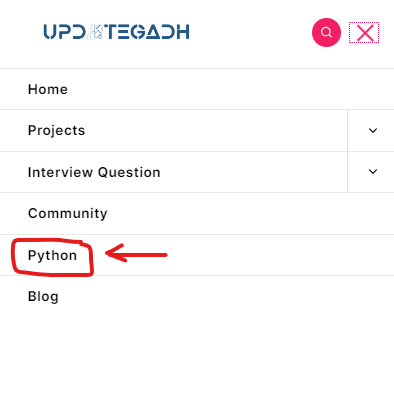Coding Question Functions in Python
1. Basic Function Practice
a. is_even(): Check if a number is even
def is_even(number):
return number % 2 == 0
# Example usage:
print(is_even(4)) # Output: True
print(is_even(7)) # Output: False
b. factorial(): Calculate the factorial using a loop
def factorial(n):
result = 1
for i in range(2, n + 1):
result *= i
return result
# Example usage:
print(factorial(5)) # Output: 120
print(factorial(0)) # Output: 1
2. Function Arguments
a. greet_user(): Greeting with keyword arguments
def greet_user(first_name, last_name):
print(f"Hello, {first_name} {last_name}!")
# Example usage with keyword arguments:
greet_user(first_name="John", last_name="Doe")
# Output: Hello, John Doe!
b. calculate_area(): Calculate the area of a circle with a default argument
def calculate_area(radius, pi=3.14159):
return pi * radius * radius
# Example usage:
print(calculate_area(5)) # Output: 78.53975
print(calculate_area(5, 3.14)) # Output: 78.5 (using a different value of pi)
Complete Python Course With PDF Notes
On mobile:-


On desktop

3. Working with Return Values
a. find_max(): Find the maximum value in a list
def find_max(numbers):
if not numbers:
return None
max_value = numbers[0]
for number in numbers:
if number > max_value:
max_value = number
return max_value
# Example usage:
print(find_max([1, 2, 3, 4, 5])) # Output: 5
print(find_max([-10, -20, -30])) # Output: -10
b. reverse_string(): Reverse a string
def reverse_string(s):
return s[::-1]
# Example usage:
print(reverse_string("hello")) # Output: "olleh"
print(reverse_string("world")) # Output: "dlrow"
4. Lambda Functions
a. List of squares using map()
squares = list(map(lambda x: x ** 2, range(1, 11)))
# Example usage:
print(squares) # Output: [1, 4, 9, 16, 25, 36, 49, 64, 81, 100]
b. Filter words shorter than 5 characters using filter()
words = ["apple", "banana", "pear", "kiwi", "grape"]
long_words = list(filter(lambda word: len(word) >= 5, words))
# Example usage:
print(long_words) # Output: ['apple', 'banana']
5. Advanced Lambda Usage
a. reduce(): Find the product of all elements in a list
from functools import reduce
numbers = [1, 2, 3, 4, 5]
product = reduce(lambda x, y: x * y, numbers)
# Example usage:
print(product) # Output: 120
b. Combine map() and filter(): Squares of even numbers from 1 to 20
squares_of_even_numbers = list(map(lambda x: x ** 2, filter(lambda x: x % 2 == 0, range(1, 21))))
# Example usage:
print(squares_of_even_numbers) # Output: [4, 16, 36, 64, 100, 144, 196, 256, 324, 400]
- Complete Python Course : Click here
- Free Notes :- Click here
- New Project :-https://www.youtube.com/@Decodeit2
- How to setup this Project Complete video – Click here
🎓 Need Complete Final Year Project?
Get Source Code + Report + PPT + Viva Questions (Instant Access)
🛒 Visit UpdateGadh Store →
Post Views: 548
